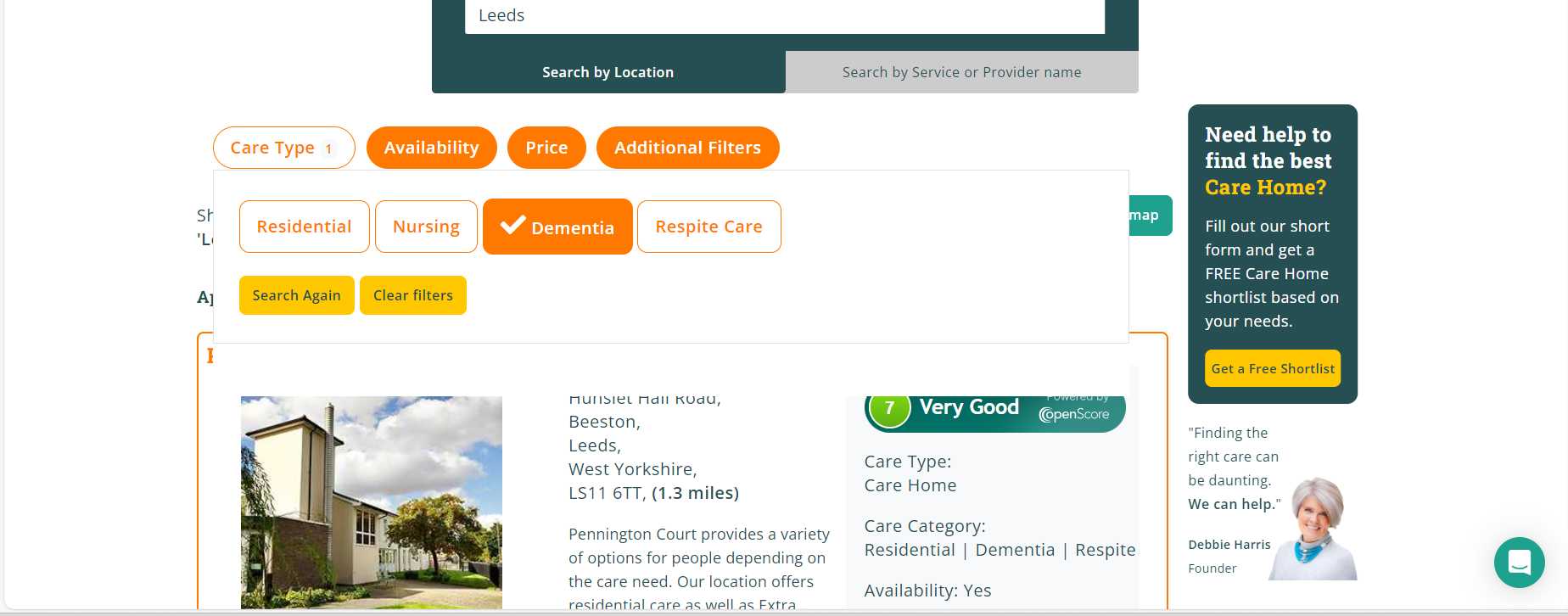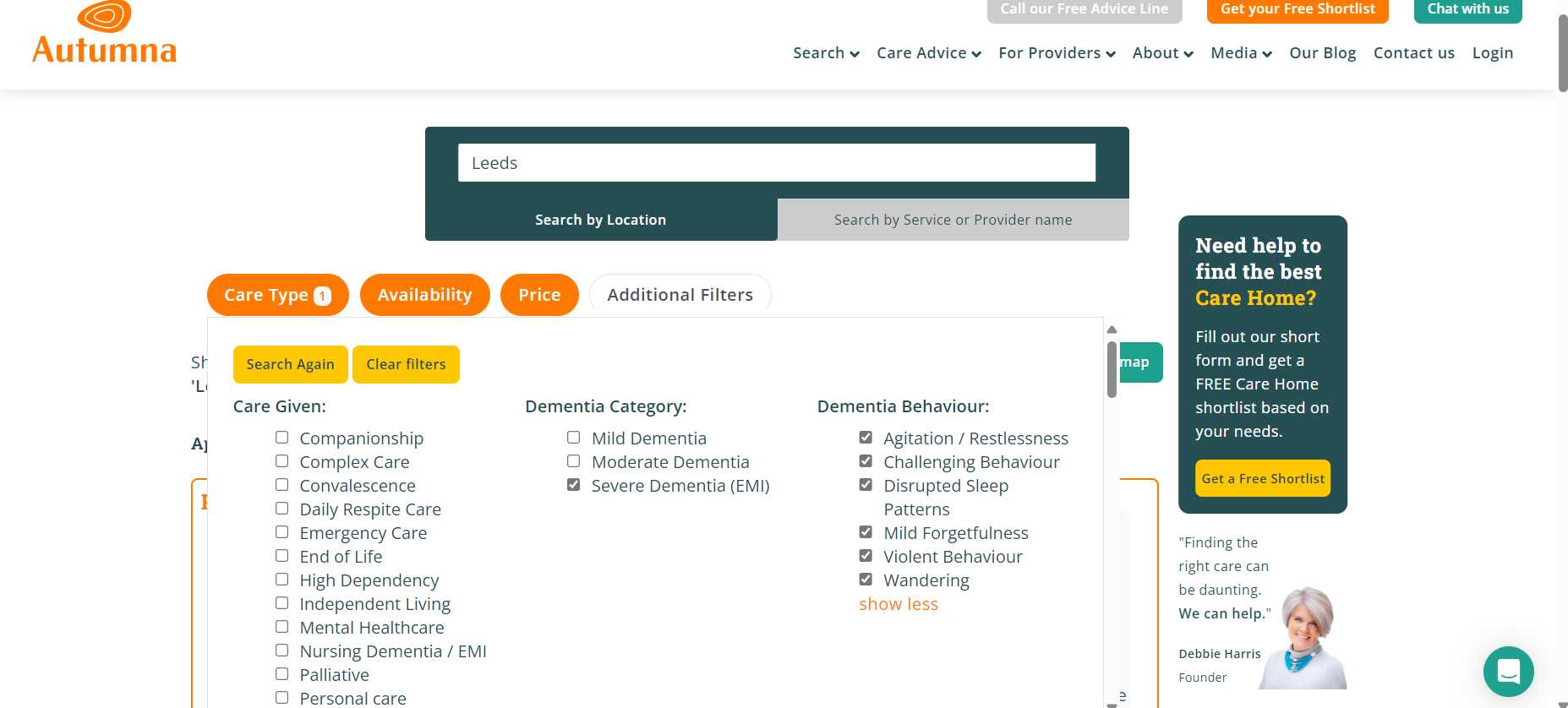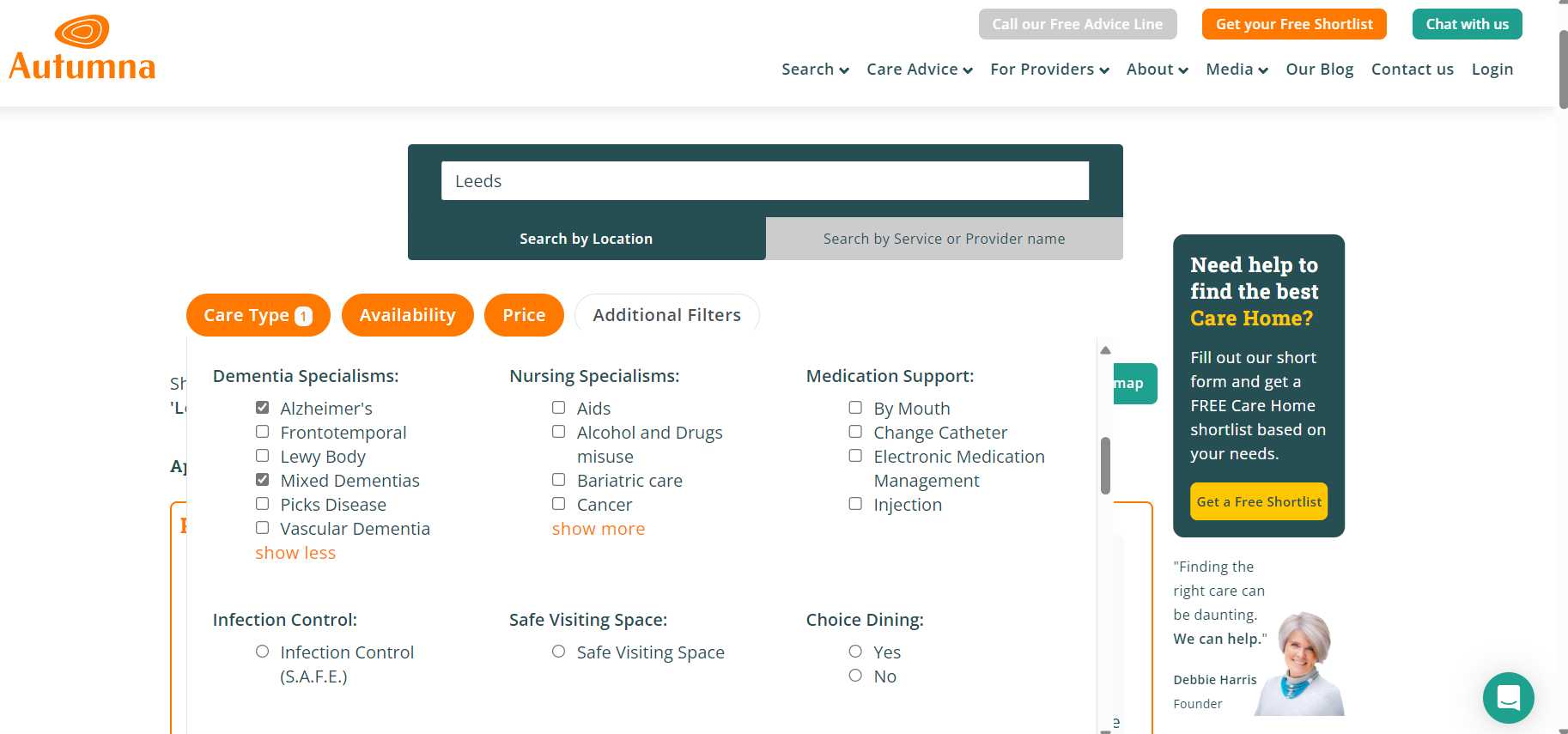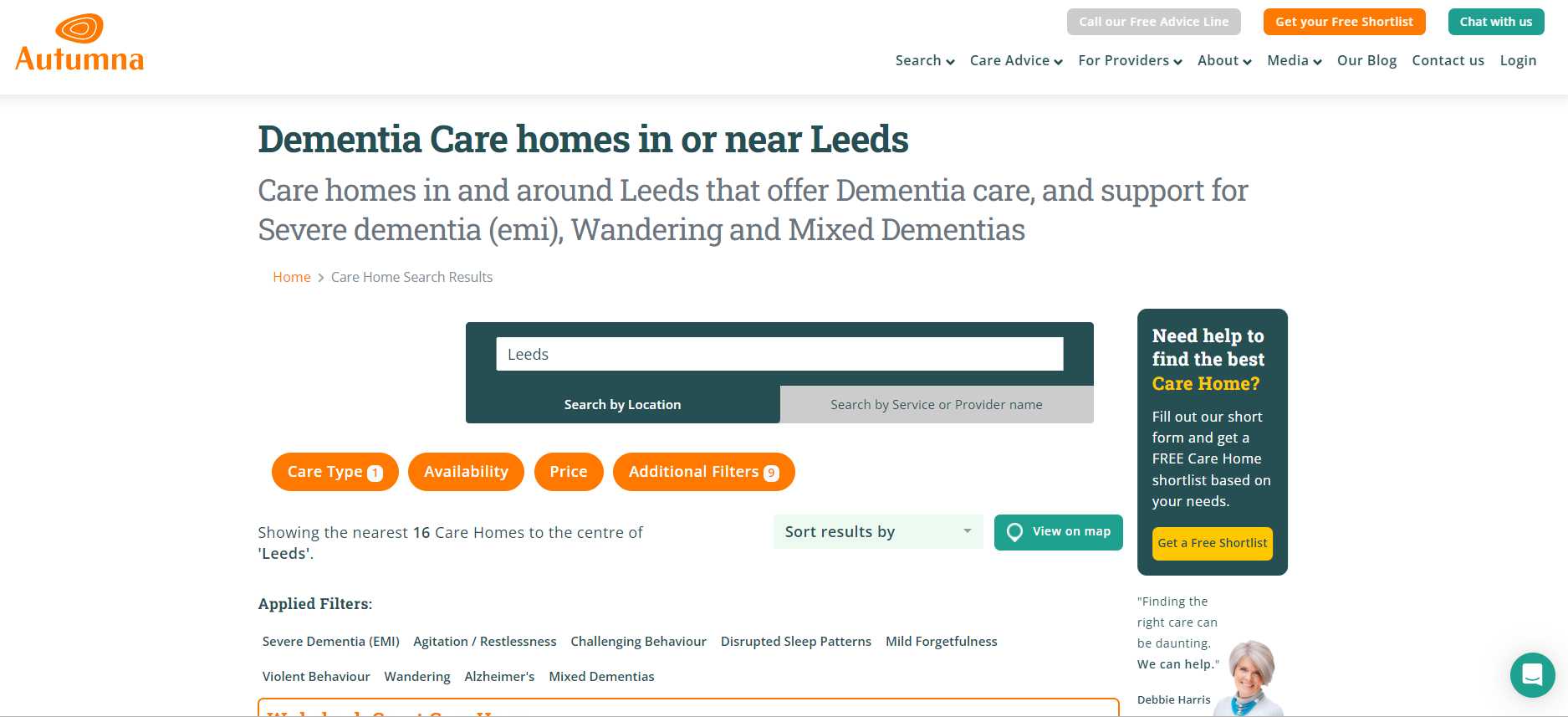Posted by Janine Griffiths
Do dementia sufferers have to pay care home fees?

Dementia can significantly impact an individual's cognitive abilities, judgment, and behaviour, leading to complex and demanding care requirements.
As the disease progresses, patients may exhibit challenging behaviours that pose risks to themselves and others. These factors necessitate intensive, specialised care, which can incur substantial costs when privately funded.
In order to determine whether you can get help towards those costs, you will have to get an assessment of your needs and circumstances. In this blog, we will discuss this in more detail and highlight the options available to care seekers.
What is dementia?
Dementia represents a collective term for a group of symptoms indicating a deterioration of brain function. This decline can be caused by a number of underlying conditions, resulting in different forms of the condition.
Common symptoms include memory loss, changes in mood or behaviour, a slower thinking speed, difficulties in doing daily activities, problems with language, and difficulties in managing emotions.
If someone is suspected of having dementia, it is important to get it confirmed with a diagnosis as soon as possible. Not only can a diagnosis help them get the right treatment, but it will also be easier for them to access the right support.
The impact of dementia is cumulative, with symptoms gradually deteriorating. Eventually, individuals may lose the capacity for self-care and face challenges in expressing themselves.
However, it is important to understand that every case of dementia is different and the condition does not have the same impact on all people who have been diagnosed with it.
Understanding dementia care needs
A common question that people often ask is ‘do dementia sufferers have to pay care home fees?’
To answer this question, it’s important to first understand what specialised dementia care entails.
A person with dementia may have to move to a care home that specialises in supporting those with dementia because of the challenges the disease causes.
It is important to note that care homes vary depending on the level of care provided. They range from nursing homes with dementia units to care homes built and designed for those with the condition.
However, unlike other types of care, dementia care must address not only physical health but also the emotional, cognitive, and behavioural challenges that come with the condition.
These facilities work to reduce the impact of dementia symptoms while offering security and peace of mind.
Caregivers in specialised dementia settings are trained to understand the complexities of the disease and handle behavioural changes with compassion and patience. This specialised care ensures that those living with dementia maintain as much independence as possible while receiving the attentive, personalised care they need.
These facilities are frequently created with thoughtful, bespoke design elements, to provide a high standard of comfort for those needing 24-hour assistance.
For example, the building may be designed so that it is easier to navigate, or it may use colours to help residents recognise where they are. Typically, these types of facilities are designed to give residents a high degree of independence while ensuring safety.
So, for example, it may allow easy access to other parts of the care home, but with proper signage, clearly defined areas and sensory environments.
The complex nature of dementia care means that some providers may charge a premium for this type of service.
Care needs assessment
Navigating the financial aspects of dementia care can be overwhelming, especially when trying to ensure that your loved one receives the best possible support. A key step in this journey is a care needs assessment, which helps determine the specific level of care required. This assessment not only identifies the necessary support but also plays a role in answering the common question, 'do dementia sufferers have to pay care home fees?'
The care needs assessment takes into account the unique challenges posed by dementia, including physical, emotional, and cognitive needs. Based on this evaluation, families can better understand the care options available and the associated costs.
So, do dementia sufferers have to pay care home fees?
The simple answer is yes. However, the real question is whether you qualify for support. This largely depends on the outcome of your care needs assessment and financial assessment. The purpose of the financial assessment is to determine if your local authority will pay towards the cost of your care.
In most cases, you will be expected to pay towards the cost of your care.
If you do qualify for assistance from the council, they will create a personal budget that shows you the overall cost, their contribution, and your share. The council is required to ensure that at least one suitable care home is available within your budget.
However, if you prefer a more expensive home, you might need to pay extra. If you don't qualify for council help, you will have to cover the whole cost yourself.
What financial support is available to dementia sufferers?
Below is a list of some of the options you can look into when paying towards the care for yourself and your loved ones.
NHS Continuing Healthcare (CHC):
NHS Continuing Healthcare (NHS CHC) is a package of care for adults which is facilitated or supported by the NHS.
You will need to be assessed by integrated commissioning boards (ICBs), which are NHS organisations responsible for planning health services for their local population, before you can qualify for NHS CHC.
It is worth noting that a diagnosis of dementia doesn’t automatically mean that you will qualify for this type of funding.
NHS Funded Care
With NHS Funded Care, the NHS handles the payment for the nursing services component of nursing home fees. The NHS pays a standard amount directly to the care home to assist with these costs.
You may be eligible for this type of financial support if you live in a nursing home, or you do not qualify for NHS CHC. For this reason, you will need to have been assessed for NHS CHC before a decision is made about whether you are eligible for NHS Funded Care.
The NHS provides a set amount of money each week to care homes for nursing care. This amount is the same everywhere in England and was £235.88 from April 1, 2024. Some people who moved into care before October 1, 2007, might get a higher amount of £324.50 per week.
Means-Tested Social Care
This is a financial assessment which determines whether your local authority will pay towards the cost of your care.
If you live in England and have savings below £23,250, your local council may contribute towards your care costs. However, you might still be asked to make a financial contribution.
The amount you pay will depend on your financial situation. A financial assessment will be carried out at no cost to you after your care needs have been determined.
You can find out more about the third-party financial support available to care seekers in our blog, ‘How to avoid selling your house to pay for care.’
Self-Funding
If you do not qualify for any financial assistance from your local authority or the NHS, then you must pay for your own care. This is known as self-funding.
Some people fund their care by selling their property in order to afford the fees. However, there are other options available.
This includes:
- Getting a care-fee annuity, which plugs the gap between the cost of your care and income.
- Investments
- Equity release
- Renting out your property
- Getting a loan from your local authority (known as a deferred payment scheme).
- Attendance allowance or PIP benefits.
For more information on all of these options, check out our guide ‘Six ways to pay for care home fees in 2024.’
Final thoughts on paying for dementia care home fees
The answer to the question do dementia sufferers have to pay care home fees? is not a straightforward one. Much of it depends on the results of care needs and financial assessments. Depending on these assessments, some individuals may receive support from local authorities or the NHS, while others might need to pay for their care privately. It's essential to explore all avenues of financial support to make the best decision for your loved one's care and wellbeing.
How to find a care home that specialises in dementia
If you are looking for a care home that specialises in dementia care, Autumna’s directory can help find the best option for you. The simple steps below will help you to get started:
- Enter your preferred location and press return.
- You can then filter your search by pressing ‘Care Type’ and selecting ‘Dementia’ and click ‘Search Again’.
- It will then bring up a list of available care homes.
- In the example below we have selected care homes in Leeds that specialise in dementia.

- You can further refine your search by clicking on ‘Additional Filters.’
- Here you can filter care homes by the ‘Category of Dementia’ they specialise in which highlights the severity of dementia that the care home caters for, namely Mild Dementia, Moderate Dementia and Severe Dementia (EMI).
- The filter also allows you to select which dementia behaviours the care home specialises in. This can include agitation, challenging behaviour, disrupted sleep patterns, mild forgetfulness and more.
- You can also filter further by ‘Dementia Specialism’ and specify what type of dementia the care home can cater for. For example, options include Alzheimer’s, Frontotemporal, Lewy Body, Mixed Dementias, Picks Disease and Vascular Dementia.
In the example below, we have filtered for Leeds-based care homes that specialise in severe dementia and selected all dementia behaviours.

We have also chosen Alzheimer’s and Mixed Dementias under the ‘Dementia Specialisms’ tab.

This brought up a list of 16 care homes in Leeds that caters to all of the selected filters above:

You can do this for any location in the UK.
Need more help?
You can get further help by answering a few quick questions to receive a FREE shortlist of the best care facilities for you.
If you require more personalised assistance with local care services or guidance on funding and benefits, feel free to reach out to Autumna’s helpful advice team on 01892 335 330.
Receive a Free Dementia Care Provider Shortlist!
Let our expert team of advisers get your search off to a great start.
Tell us a little about your needs and we'll send you a bespoke shortlist of dementia care homes! Click the button below to begin, it takes just a few minutes.
Other articles to read
From the blog

Older Persons Care Advice
How to shortlist care homes in Exeter
April 17th, 2025
Looking for an adult day care centre near you? Discover how to find safe, joyful care for your loved one—and support for yourself—on Autumna.

Older Persons Care Advice
What is Discharge to Assess?
April 16th, 2025
Discover how Discharge to Assess (D2A) supports faster recovery, reduces hospital stays, and how Autumna helps simplify finding the right care.

Older Persons Care Advice
What are the benefits of person-centred care?
April 9th, 2025
Discover the benefits of person-centred care—from improved wellbeing to better outcomes—for individuals, families, and care providers alike.






